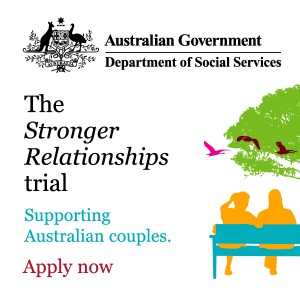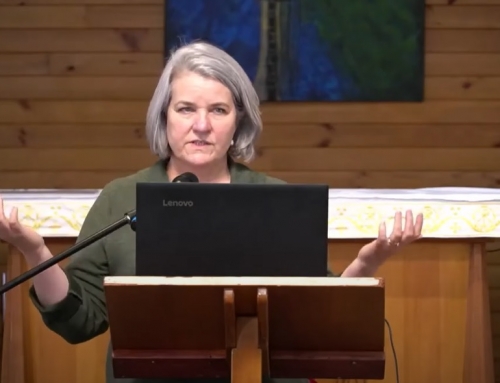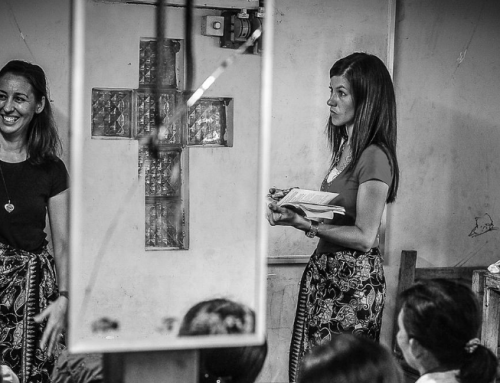In July the Australian Government’s ‘Stronger Relationships Trial’ came into effect. This trial has budgeted for 100,000 couples to receive a $200 subsidy towards the cost of a relationship education class or counselling run by approved providers. One has to ask: Why, with so many cutbacks in the budget, would the government initiate a $20 million program focused on strengthening marriage and family life?
Kevin Andrews MP, the Minister for Social Services is personally well versed in the value of marriage education. Together with his wife Margaret they were one of Australia’s pioneers in the field. His recent book “Maybe ‘I Do’” sets him apart as arguably the most well informed Australian on research in to marriage.
As the Minister for Social Services overseeing an annual $140 billion budget, it is safe to say that he also understands more than most the cost of marriage breakdown to the Australian community. The comprehensive 1998 Parliamentary Inquiry ‘To Have and to Hold’ estimated that the direct cost of divorce (i.e., family court costs, single parent pensions associated with previously married people, etc.) was costing the Federal government $2.8 billion a year (that’s $4.3 billion in today’s terms). Put another way, the cost to the Australian taxpayer for each divorce is about $60,000.
Of course this figure is a significant under-estimate of the true costs as it does not include the cost to the individual families themselves who have enduring higher household costs, nor their employer who will carry the burden of increased sick leave and lower productivity – all of which is well demonstrated through research. Nor does it count the cost to their children who will move into a higher risk group for depression, anxiety, poor school performance, teenage pregnancy and drug abuse and, according to the research, can carry the negative impact of a parents divorce well into their adult relationships.
Counselling or Education?
The obvious question is: Will counselling or education help? Not surprisingly, most of the commentary on this topic to date seems to have focussed on marriage counselling, raising the question about how much impact a $200 contribution could make to what can be quite an expensive process. This is arguably a legitimate question when it comes to counselling, but it misses an important broader point: that marriage education is different to counselling and offers much greater ‘bang for the buck’. $200 can get you a long way towards a course with up to 20 hours of educative content compared to one or two counselling sessions.
In contrast to marriage counselling, which tends to be sought in the terminal stages of a relationship, in marriage education the emphasis is on prevention. It teaches couples some practical relationship skills allowing them to more intelligently and consciously manage their marriage. It’s a bit like cooking, while most of us can do the basics, we can learn to cook a lot better with a little training because there are helpful skills and techniques that are not obvious unless taught.
These days, while some marriages survive without ongoing education, increasingly many don’t. Time set aside as a couple in a well-designed educative program provides skills and insights that build relational resilience and that helps the marriage thrive. Marriage education is obviously not about making couples stay in dysfunctional or dangerous relationships; rather it is about helping spouses to mature and up-skill so that they can together create the marriage for which they both long.
There are numerous studies that have demonstrated the benefits of quality marriage education course. For example, the 2013 study lead by Donald Rouge (University of Rochester) and colleagues across several US universities), demonstrated that each of three different marriage educative programs halved the divorce/separation rate in the first three years of marriage (from about 24% to
11% of couples) compared to the control group who undertook no education. These courses were not that onerous, involving on average about fifteen total hours of effort.
What always amazes us is why people find this idea so surprising. Over the past two decades the psychological and sociological sciences have provided enormous insights into how to manage and navigate married life through its inevitable ups and downs. However, despite this increasing understanding we have not developed any routine mechanisms to pass these insights on to couples. Marriage (and parenting) has to be the only area in our society where we expect people to somehow ‘self-discover’ vitally important information that researchers have spent years deciphering.
A National Skills Gap
Ask any couple getting married if they desire it to end in divorce and they answer is almost always no. Ask any husband or wife what is the most important thing in their life and the answer is often their marriage and family. But ask either when was the last time they invested in any professional development in this area and you usually get a blank look. The workplace cannot operate this way, so why do we expect it to be any different in this area? Married life is after all getting more, not less, complicated over time. With so many couples ending up with a divorce they never wanted, it seems obvious that there is an ever widening ‘national skills gap’ in marriage and family life and it is costing our nation a fortune; poverty in any advanced economy is most often linked to marriage and family breakdown.
So here’s the investment proposition of the Stronger Relationships Trial; if a typical divorce costs the taxpayer about $60,000 then only 333 couples out of the 100,000 taking up this trial need to avoid a divorce for this to be break-even for the government. That is only one third of one percent or less than 1:300 couples. While a little over simplified, the real cost of divorce to the community is even higher so this is really an under-estimate. Either way, the potential for this trial is clearly a compelling proposition for the government.
Changing Attitudes
As a nation we need to start thinking of marriage education as both closing a skill gap and as insurance; it builds skills that makes marriages more successful, and in turn reduces the risk of an outcome no one wants and comes with high costs. Given its benefits of marriage education, one would think that couples would voluntarily opt to spend their money on it, but too few do. As a nation we have not got our heads around relationship education as a part of everyday life yet. This is where government has a legitimate role to play. Actively incentivising changes in attitude and behaviour, where there is a high direct pay-off to government (and beyond), is a worthwhile experiment.
Providing a financial contribution towards relationship education will naturally reduce the barrier to couples trying it. But it has an additional benefit; the very initiative itself sends a broader message: that education in relationship skills is important. Government have initiated skill training programs in the past where identified skill gaps existed; if there was ever a case for helping to meet a skill gap then marriage education would have to be at the top of the list.
Our advice to any couple whose marriage is traveling along pretty much okay is simple: “lose your complacency, get off the couch and do something for your marriage together now, before you think you need it. It can’t hurt, you’ll probably enjoy it, it’s odds-on to make things even better – and it’s never been cheaper to try it”.
So, can you save a marriage with $200? Well clearly not every marriage but, probably many marriages. In the scheme of things this trial is economically rational and it’s high time we started putting some public investment into our core social, rather than just our physical, infrastructure.
Francine & Byron Pirola are Directors of the not-for-profit Marriage Resource Centre and have over 20 years’ experience in marriage education. They are authors of the SmartLoving pre- and post-marriage education courses. Disclaimer: Their courses will be eligible for the Stronger Relationships Trial.





